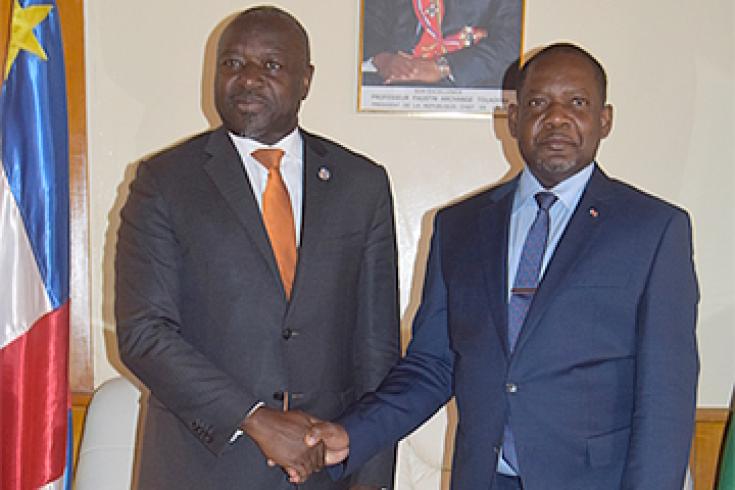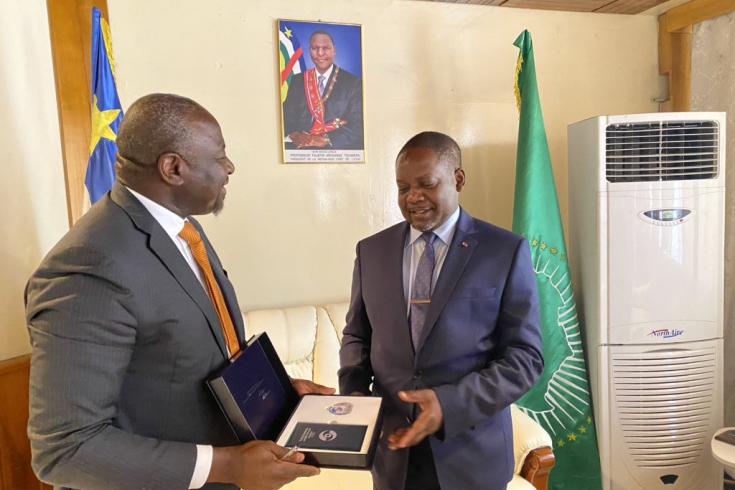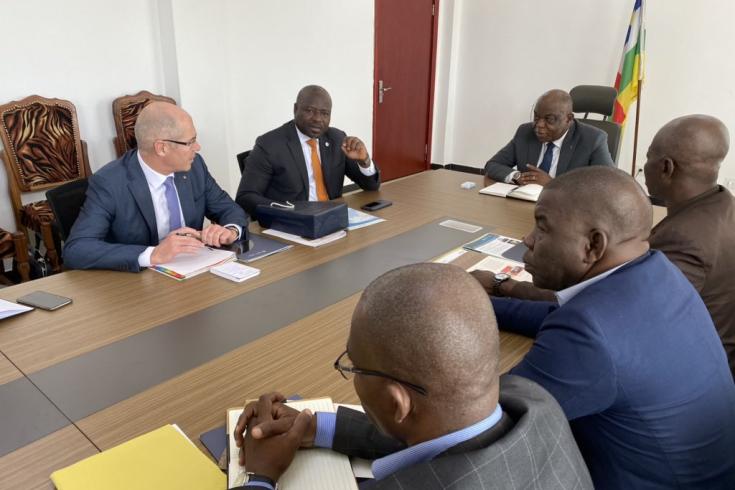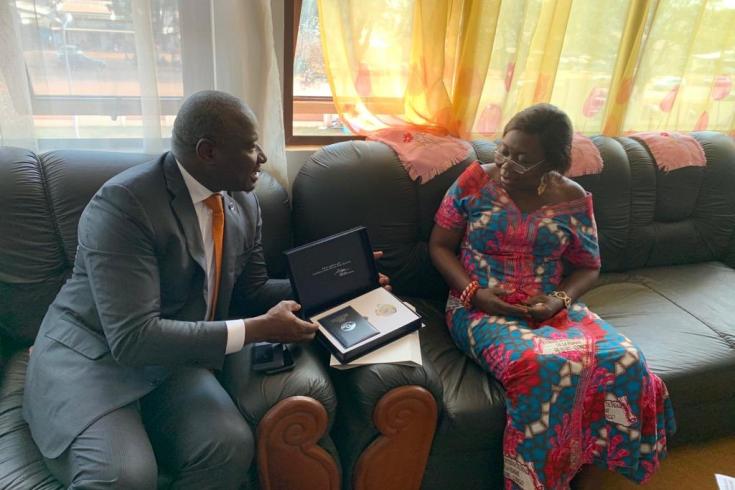CTBTO to launch building of IMS stations in Central African Republic
The Comprehensive Nuclear-Test-Ban Treaty Organization (CTBTO) is to kick off construction of two monitoring stations in the Central African Republic (CAR) as the country’s security situation improves, bringing the International Monitoring System (IMS) ever closer to completion.
Plans to launch the building of the primary seismic and infrasound stations PS11 and IS12 were confirmed during a recent visit to the CAR by CTBTO Executive Secretary Lassina Zerbo, with capacity building and gender equality at the heart of the project.
Prime Minister Firmin Ngrebada reiterated the CAR’s firm commitment to the Comprehensive Nuclear-Test-Ban Treaty (CTBT) and assured Zerbo of the government’s full support for the establishment and long-term sustainability of the two stations, as well as the country’s National Data Centre.


The government will do all in its power to fully support the establishment of the IMS stations PS11 and IS12 and of the National Data Centre.
“We hope for a quick start to rehabilitation and construction work on stations PS11 and IS12 of the International Monitoring System,” Zerbo said. “Completing the remaining 8% of the IMS remains our goal.”
The IMS reached the landmark of 300 certified facilities in December 2019, and more are already under construction, moving increasingly close to the total of 337 facilities set out in the CTBT.
The Prime Minister said security conditions had improved as the state extended its authority throughout the CAR, and the government would do its best to secure the sites throughout the construction projects and through the operation and maintenance phase. The CAR authorities and 14 armed groups signed a peace agreement in February 2019.

Lassina Zerbo discusses project details with Leopold Mboli Fatran, Minister of Mines & Geology (CAR).



I am committed to building capacity as an essential component of the construction projects so that they can draw on local skills as much as possible and allow us to invest over time.
Zerbo said he would put capacity development at the centre of the construction projects, providing technical training as soon as possible in Vienna for a core group of national experts and relying as much as possible on local skills as an effective way to ensure long-term sustainability.
He stressed the importance of ensuring gender balance among the experts selected for training, and providing opportunities to young scientists and engineers.
Zerbo had extensive discussions on project implementation with Leopold Mboli Fatran, Minister of Mines and Geology and representative of the CTBT National Authority. He also met Ginette Amara Ali Mazicki, Minister of Scientific Research and Technological Innovation.
A CTBTO specialist made a reconnaissance trip to four sites near Bangui to identify options for the installation of the infrasound station. The visit took place from 9 to 11 March 2020.
18 Mar 2020